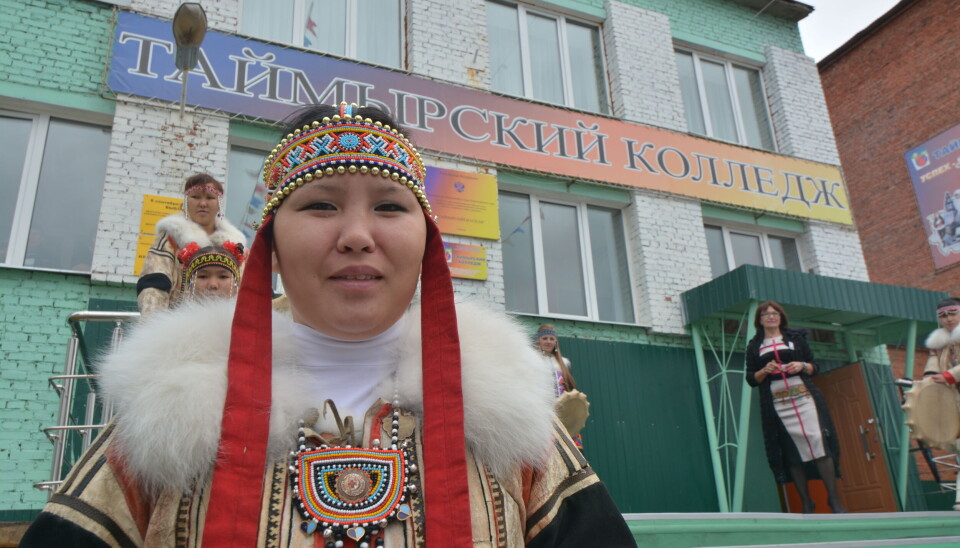OPINION

Presidential decree: All languages are equal, but Russian is more equal
A wide-ranging presidential decree lays out an imperialist program to promote the Russian language as a conduit for Russian identity and for traditional spiritual and moral values worldwide. The decree furthermore purges Russian of foreign vocabulary and indigenous languages of non-Cyrillic letters.
On June 24, Putin signed Law 168-F3, requiring that from March 1, 2026 public signage and labeling be presented in Russian with Cyrillic letters, with some exceptions allowing use of other approved languages of the Russian Federation. To top this law off, on July 11, Putin signed Decree 474 “Approval of the Fundamentals of the State Language Policy of the Russian Federation”, which went into effect immediately. This decree contains a raft of proposals aimed at the “preservation, development, and support” of three classes of language, starting with Russian. In Orwellian fashion, the decree, despite lip service to “ethnocultural diversity”, leaves no question as to the primacy of Russian, which it justifies on historical, patriotic, spiritual, and moral grounds.
In a distortion of history echoing Putin’s rationalization for his attack on Ukraine, the decree states that “Russia is a country with more than a thousand years of experience as an independent state, united by the Russian people, the Russian language and Russian culture.” The implication that the Russian language has existed for a thousand years is, from a linguistic perspective, patently false. Modern Russian, descended from Old East Slavic along with Ukrainian and Belarusian, has been a distinct linguistic entity for only about 600 years.
The decree is motivated by a perceived need to combat two kinds of threats to the Russian language: unnecessary use of foreign words (presumably from English and other western languages), and “attempts by some foreign countries to limit (reduce) the space for use of the Russian language”, a thinly-veiled reference to the curtailing of Russian in Ukraine.
According to the decree, the Russian language uniquely “defines the civil identity of Russia and is the key to the unity of the cultural and humanitarian space of Russia”. Furthermore, “the Russian language is one of the foundations of Russian statehood and is inextricably linked with traditional Russian spiritual and moral values”.
Over 200 languages are spoken in Russia. Аll citizens are guaranteed the right to use their native language, but this applies only to indigenous or ethnic languages acquired in early childhood. The decree invokes a linguistic hierarchy in which Russian is acknowledged as the only “state language of the Russian Federation”. Next come “state languages of the republics of the Russian Federation”, of which there are officially 37, among them Tatar, Chechen, and Bashkir. In third place are “other languages of the peoples of the Russian Federation”, loosely defined as those used “in arenas defined by legislation concerning the languages of the peoples of the Russian Federation, as well as in interpersonal communication”. Presumably this third group includes the 17 languages that have official status in Russia, among them Chukchi and Kazakh. All languages (here the decree specifically includes also Russian) are to be presented using only Cyrillic letters, and alphabets will be developed as needed. The 37 languages in the second category already have Cyrillic alphabets, but several in the third category, which also includes German, Yiddish, and Finnish, do not, and the wisdom of creating Cyrillic alphabets for them is dubious.
There are ambitious plans for development, teaching, and dissemination of language norms. Normative Russian dictionaries and grammars will define the limits of proper Russian, excluding from public use foreign words that have Russian equivalents. A unified series of textbooks and teaching methodology will be implemented in schools, with corresponding plans for languages in the other two categories. Remedial courses will bring the Russian proficiency of government officials up to the new linguistic standard. Extra-curricular activities will target the younger generation, encouraging them to join book clubs, participate in competitions, and eschew the use of obscene language. In the interest of “promoting the Russian language in the world and increasing Russia's role in the global humanitarian and scientific space”, materials for foreigners who wish to learn Russian will be published and made available on the internet, and there will be internships, stipends, and prizes for both learners and teachers of Russian abroad. One has to wonder to what extent these programs will be laced with propaganda about the superiority of “Russian traditional values”, as well as who will be tempted by these offers.
This new decree, anchored in law and granted executive function at the federal level, is, in a sense, a rebranding of the “Russian World” (Russkij mir) concept from the 1990s, which is also invoked in the decree and was used to justify the 2014 and 2022 invasions of Ukraine. Despite government and ecclesiastical support of the “Russian World”, it has had limited success as a soft power strategy outside of Russia.
















